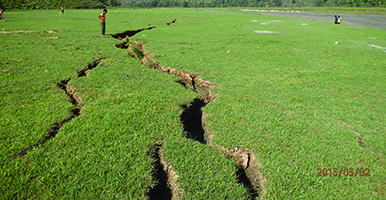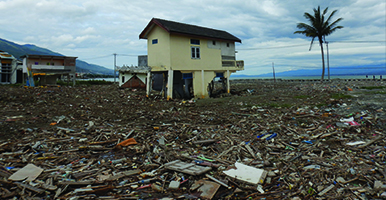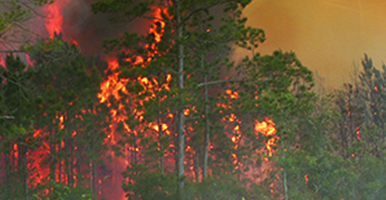2021 - Second Western-ICLR Multi-hazard Risk and Resilience Workshop


Communities in Canada and worldwide need to strengthen resilience to natural disasters and climate change to protect human health, avoid loss of lives, and safeguard economies. Multiple natural and anthropogenic hazards can interact creating elevated significant risks to society, infrastructure, the environment, and various economic sectors. Although hazard-specific challenges have been well studied and now broadly understood, there are critical gaps in understanding risks that are driven by cascading and compounding hazards, and in creating innovative solutions to mitigate the impact of extreme disaster events particularly in the changing climatic environment. Disaster risk reduction (DRR) is a key priority for Canada, with Canada being a signatory to UNISDR’s Sendai Framework initiatives and focused on implementing programs across the nation. Future innovators and leaders within the DRR industry and government need technical knowledge that crosscuts multiple traditional disciplines and a deep understanding of the complexity and interdependency of economic and social factors. In responding to these needs, Western’s Multi-Hazard Risk and Resilience group and the Institute of Catastrophic Loss Reduction hosted the 2019 Multi-Hazard Risk and Resilience workshop.
The 2021 Western-ICLR Multi-hazard Risk and Resilience Workshop brings together researchers from different disciplines who are studying disasters and engage key stakeholders from government/municipality and industry. It will provide a forum to discuss these risks and how they relate to these end-users. Currently, the workshop is scheduled for November 1st and 2nd, 2021. The workshop mode is hybrid, consisting of virtual and in-person sessions. The following themes are identified:
- Session 1 (12:00-14:00, November 1st, 2021, virtual) - Resilience against meteorological perils and climate change
- Session 2 (15:30-17:30, November 1st, 2021, virtual) – Remote sensing and Artificial Intelligence methods for disaster risk reduction
- Session 3 (10:30-12:30, November 2nd, 2021, virtual) – Risk financing for disasters
- Session 4 (13:30-15:30, November 2nd, 2021, in-person/virtual) – Geological hazards and risks - Towards policy-making and mitigation
- Session 5 (16:00-17:30, November 2nd, 2021, in-person/virtual) – Student competitions for 3-minute lightning talks on their multi-hazard risk and resilience research topics/projects
CONGRATULATIONS to the nine students who participated in the Lightning Talks!
Special recognition to our top three scores:
1st Place: Elisa Dong 2nd Place: Kevin Potoczny
3rd Place: Payam Momeni
About us:
There is a critical need for not only the scientific understanding and quantification of the risks that arise from natural hazards, but also the translation and transfer of that knowledge to end-users in government, industry and communities to better inform public policy and develop insurance plans. Western has been a leader at the forefront of fostering scientific research in natural hazards. The recently created Multi-Hazard, Risk and Resilience Group through the Interdisciplinary Development Initiative (IDI) Program, gathers researchers from different Departments and Faculties at Western. A multi- and interdisciplinary research-driven group that aims to address national and global challenges related to disaster risk reduction against natural catastrophe, with people from the Departments of Earth Sciences, Statistical and Actuarial Sciences, Civil and Environmental Engineering, and Geography. At the same time, the Institute for Catastrophic Loss Reduction (ICLR) has long acted as the bridge between curiosity-driven discovery-focused research and the insurance and homebuilding industries, government and local municipalities, and the public.
There is a critical need for not only the scientific understanding and quantification of the risks that arise from natural hazards, but also the translation and transfer of that knowledge to end-users in government, industry and communities to better inform public policy and develop insurance plans. Western has been a leader at the forefront of fostering scientific research in natural hazards. The recently created Multi-Hazard, Risk and Resilience Group through the Interdisciplinary Development Initiative (IDI) Program, gathers researchers from different Departments and Faculties at Western. A multi- and interdisciplinary research-driven group that aims to address national and global challenges related to disaster risk reduction against natural catastrophe, with people from the Departments of Earth Sciences, Statistical and Actuarial Sciences, Civil and Environmental Engineering, and Geography. At the same time, the Institute for Catastrophic Loss Reduction (ICLR) has long acted as the bridge between curiosity-driven discovery-focused research and the insurance and homebuilding industries, government and local municipalities, and the public.




